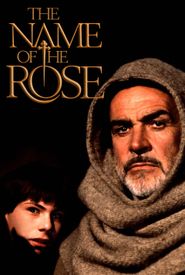Helmut Qualtinger's life journey began in the vibrant city of Vienna, Austria, where he first embarked on a path in medicine, only to later abandon his medical pursuits to embark on a new adventure as a newspaper reporter and film critic. As his creative inclinations continued to evolve, he redirected his focus towards crafting engaging scripts for cabaret performances and theatrical plays. The renowned student theater served as the stage for Qualtinger's acting debut, and he later had the esteemed privilege of attending the prestigious Max Reinhardt Seminar as a guest student, further honing his craft and refining his artistic skills.
It was the year 1947 when Qualtinger embarked on a career in cabaret performances, and his theatrical debut was marked by the staging of his first play, "Jugend vor den Schranken," in the city of Graz in 1949. Subsequently, he joined forces with the renowned Namenlosen Ensemble, a collective of talented artists comprising the likes of Gerhard Bronner, Carl Merz, Louise Martini, Peter Wehle, Georg Kreisler, and Michael Kehlmann, to participate in a multitude of cabaret programs, a creative endeavor that spanned over a decade, coming to a close in the year 1960.
Noted Austrian comedian and actor, Oskar Maria Qualtinger, was renowned for his ingenious knack for devising and executing elaborate practical jokes, often showcasing his unorthodox thinking and creative problem-solving skills.
One of his most memorable and ingenious pranks occurred in 1951, when he cleverly fabricated the arrival of a fictional Inuit poet, Kobuk, who was purported to have penned a literary masterpiece titled "The Burning Igloo". Reporters from various media outlets, eager to secure an exclusive interview with the reclusive poet, converged upon the train station, only to be met with Qualtinger himself, resplendent in a fur coat and cap, who proceeded to regale them with captivating tales about his initial impressions of Vienna, delivered in a thick, authentic Viennese accent.
Noted Austrian writer and performer, Fritz Qualtinger, demonstrated his remarkable skills as a playwright and performer in his groundbreaking one-man play, "Der Herr Karl", a collaborative effort with Carl Merz, which made its debut in 1961.
This remarkable theatrical production, "Der Herr Karl", told the captivating story of a humble grocery store clerk, Herr Karl, who, in a poignant and introspective monologue, recounts his life's journey to an imaginary colleague, spanning the vast expanse of time from the illustrious Habsburg empire to the tumultuous post-war era.
The enigmatic character of Herr Karl, brought to life by Qualtinger's masterful performance, was a quintessential embodiment of opportunism, a stereotype that sparked both widespread acclaim and controversy, as it boldly tackled the sensitive and complex issue of Austrians' involvement in the Nazi regime.
During the 1970s, the renowned Austrian actor and recitalist, Qualtinger, embarked on a remarkable journey, delivering captivating performances of his own original texts, as well as excerpts from the works of other notable authors, including Adolf Hitler's infamous "Mein Kampf" and Karl Kraus' thought-provoking "Die letzten Tage der Menschheit".
These extraordinary recitals garnered widespread popularity, leading to the production of multiple records, which not only showcased Qualtinger's impressive vocal range and interpretive skills but also cemented his status as a master of his craft.
The immense success of these recitals was a testament to Qualtinger's unique ability to bring words to life, his unparalleled passion for the art of recitation, and his unwavering commitment to sharing his talent with the world.
Through his performances, Qualtinger not only paid homage to the works of his predecessors but also left an indelible mark on the world of recitation, inspiring future generations of artists and solidifying his position as a true legend in his field.
Qualtinger's remarkable recitals continue to be celebrated and remembered, a lasting testament to his enduring legacy and a reminder of the transformative power of words, expertly crafted and delivered with precision and flair.
Noted Austrian actor, Oskar Maria Qualtinger, left an indelible mark on the entertainment industry, gracing the stages, screens, and airwaves with his remarkable talent, participating in a multitude of productions, including the iconic 1986 film "The Name of the Rose," which featured the esteemed Sean Connery.
Qualtinger's remarkable career spanned numerous genres and mediums, showcasing his incredible versatility as a thespian. His extensive repertoire included a wide range of roles in theater, television, and film, solidifying his position as a respected figure in the Austrian entertainment scene.
Sadly, Qualtinger's life was cut short due to complications from a liver condition, ultimately leading to his passing on September 29, 1986, in Vienna.


















